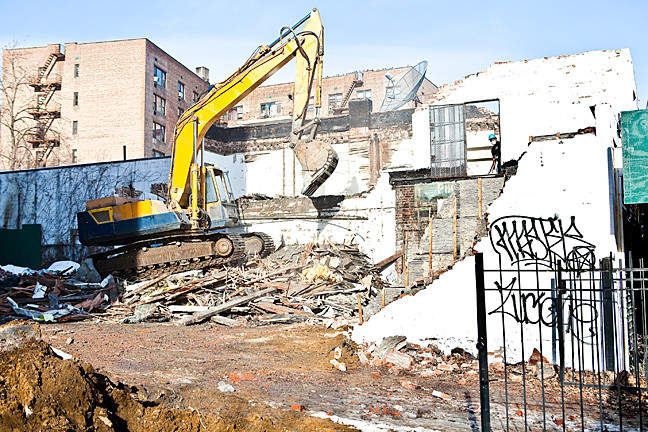Council betrays city
Of the many problems with the mayor’s plan to rezone the city, perhaps the most troublesome involves provisions that would deprive communities of any say over developments in rezoned areas. While the ULURP process has provided a check on misguided projects over the years, the Zoning for Quality and Affordability (ZQA) proposal allows developers to circumvent the procedure. The initial version of the other component of the mayor’s rezoning vision, the Mandatory Inclusionary Housing (MIH) plan, would have allowed the city to arbitrate where new affordable units can go and what prices they should cost.
Now City Council leaders say they are going to pass the plans, after just a few tweaks. The body is not restoring a meaningful community voice to how the mayor’s vision of facilitating 80,000 new units of affordable housing will be implemented over the coming decade.
Instead, under the revised version of MIH, developers who want to build in rezoned areas will have to include a certain percentage of affordable units. But just how affordable they have to be — and how much profit developers will make — is left to individual council members to determine. There is no precedent for giving these legislators such executive power.
It presents a nightmare scenario of backroom deals and does nothing to protect the character of neighborhoods. Some grassroots groups have applauded the council’s move to reduce the income level for eligibility for the new affordable units, but they are ignoring the aggressive lobbying we can expect from developers who will try to pressure council members into making affordable units as profitable as possible. Recall that the architect of MIH, the mayor, sold out to developers when he accepted millions of dollars from them for the non-profit “Campaign for One New York” that supports his work.
With no public oversight of the process for setting prices for new affordable units, who knows what developers will do to influence elected officials.
As for ZQA, even before the council got its hands on the proposal, the City Planning Commission (CPC) had already affirmed one of its most egregious provisions. As local activists have pointed out, ZQA allows institutions like the Hebrew Home at Riverdale to erect gigantic buildings in areas otherwise zoned for single–family homes without going through the ULURP process, which requires projects to gain approval from community boards before they can move ahead. The final version of ZQA requires so-called continuing care retirement communities to receive special permits from the CPC — but community boards are defanged in the new process.
Many other problems with MIH and ZQA remain unaddressed by the deal the council hammered out with the mayor’s administration earlier this week. Nearly every community board in the city voted against the proposals on grounds that ZQA’s measures to raise height limits on some buildings will harm the character of communities and that MIH could lead to overdevelopment, among other concerns.
Northwest Bronx Councilman Andrew Cohen says he will vote against ZQA but in favor of MIH, on grounds the latter proposal stands to affect the northwest Bronx less than the former. He deserves credit for sticking to his guns on ZQA, but should vote against MIH, too.
His colleagues including Kingsbridge Councilman Fernando Cabrera and Marble Hill Councilman Ydanis Rodriguez have voiced support for all of the mayor’s plans. These officials are telling a diverse group of grassroots activists throughout the city that they know better. Voters will be sure to remember this cavalier attitude at the next election.






